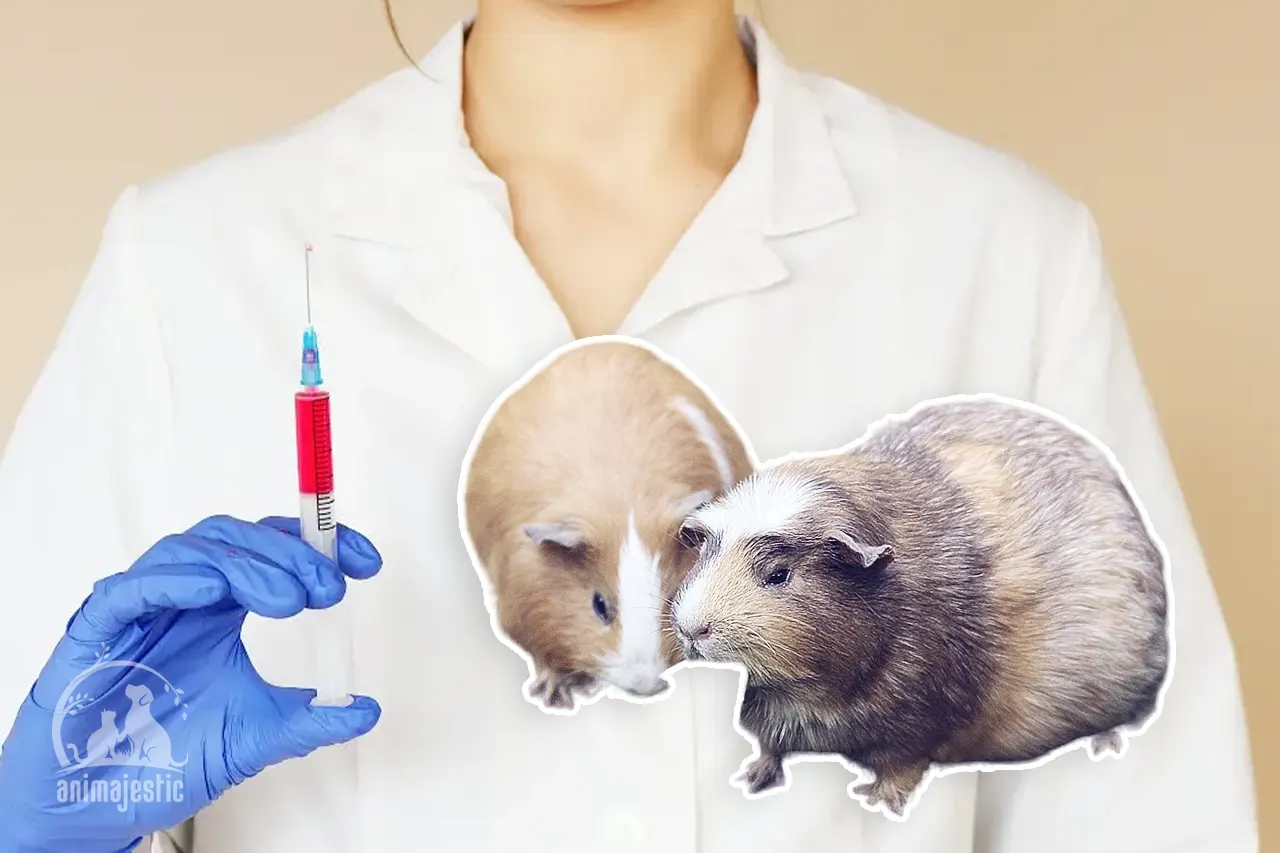Guinea pigs, or ‘cavies’ as they’re sometimes known, are cherished pets across the globe. These small, sociable animals burst with personality and character, making them favorite household companions.
While their endearing charm is compelling, taking good care of them entails a deep understanding of their unique medical and day-to-day needs.
With that said, let’s delve into the topic of guinea pig vaccination and routine care, painting a vivid picture of the advice and tips you need to keep your guinea pig healthy and content.
The Guinea Pig Vaccination Question
When it comes to most pets, discussions on care often commence with the topic of vaccination. However, in the realm of guinea pig health, the rules somewhat differ.
It might surprise you to learn that unlike their fellow pet peers, such as dogs or cats, guinea pigs do not require routine vaccinations. This may seem at odds with general pet care advice, but it is founded on solid veterinary understanding.
The primary diseases afflicting guinea pigs aren’t viral, meaning they cannot be prevented through vaccination.
Therefore, while the world of guinea pig care may not involve a path paved with vaccines, it does undoubtedly require an unwavering commitment to good hygiene, balanced nutrition, routine checks, and an optimal living environment.
These factors help bolster the natural immune defenses of your guinea pig, ensuring they can live a healthier life.
The Cornerstone of Routine Care: Health Checks
Due to the absence of vaccination in guinea pig care, regular health checks become particularly pivotal. These checks act as the first line of defense against potential illnesses, enabling early detection and timely treatment. Among the key signs you should monitor:
- Weight: Weight loss could point towards underlying health problems.
- Eating habits: Any changes in appetite or difficulties in eating can be an indication of issues like dental problems.
- Behavior: Changes in your pet’s behavior or energy levels may suggest discomfort or illness.
- Physical appearance: Regularly assess the condition of your guinea pig’s eyes, skin, fur, teeth, and nails.
Should you observe any concerning changes, don’t hesitate to contact a professional. A veterinarian with a specialization in exotic pets and small mammals can perform a comprehensive evaluation and provide appropriate treatment plans.
The Importance of a Balanced Diet
The foundation of guinea pig health lies significantly in their diet. Firstly, they need constant access to fresh hay, which aids with digestion and dental health.
Alongside hay, guinea pigs require a daily intake of vitamin C, as their bodies, like our own, lack the capacity to produce it.
Various vegetables (like bell peppers or parsley) and special guinea pig pellets supplement their vitamin C requirement. Remember, however, to avoid over-feeding them with fruit due to high sugar content.
Home, Sweet Home: Housing Your Guinea Pig
A spacious, clean, and safe living environment is paramount for your pet’s well-being. When putting together your guinea pig’s cage, keep these tips in mind:
- Choose a large cage to permit movement and exploration.
- Opt for a solid and smooth cage floor to protect their delicate feet.
- Regular and thorough cleaning prevents the build-up of bacteria and maintains hygiene.
- Use absorbent, comfortable, and non-toxic bedding.
Fostering Physical Fitness: Exercise and Playtime
Ensuring your guinea pig is physically active is crucial to circumvent obesity and maintain general health. Designate supervised out-of-cage time each day for them to exercise.
Moreover, create a stimulating environment within their living space through various toys, hideouts, and activity platforms that will keep them entertained and engaged.
Social Creatures: Handling and Companionship
Guinea pigs are inherently social animals and crave interaction. Regular, gentle handling will foster trust, encouraging your guinea pig to feel safe and loved.
Remember that companionship is also vital for their mental well-being. Keeping guinea pigs in pairs or small groups (same-sex or neutered) can address their need for social stimulation.
Weathering the Weather: Adapting to Climate Changes
Guinea pigs are sensitive to extreme temperatures. As owners, it’s important that we protect them from weather-related discomfort. During hot weather, ensure they have constant access to water and shade.
Conversely, during cold periods, warm bedding and draft-free housing can help them keep cozy.
The Value of Veterinary Visits
Finally, establish a routine of regular professional check-ups. These are times of preventive healthcare, giving vets an opportunity to detect and address health issues early.
In conclusion, owning a guinea pig is a fulfilling journey. Even though vaccinations are off the table, careful attention to their physical health, dietary needs, housing, socialization, and general lifestyle habits can create the right environment for them to thrive.
The truth remains that the more conscious we are about the unique needs of our guinea pigs, the higher the quality of life we allow them to lead.
